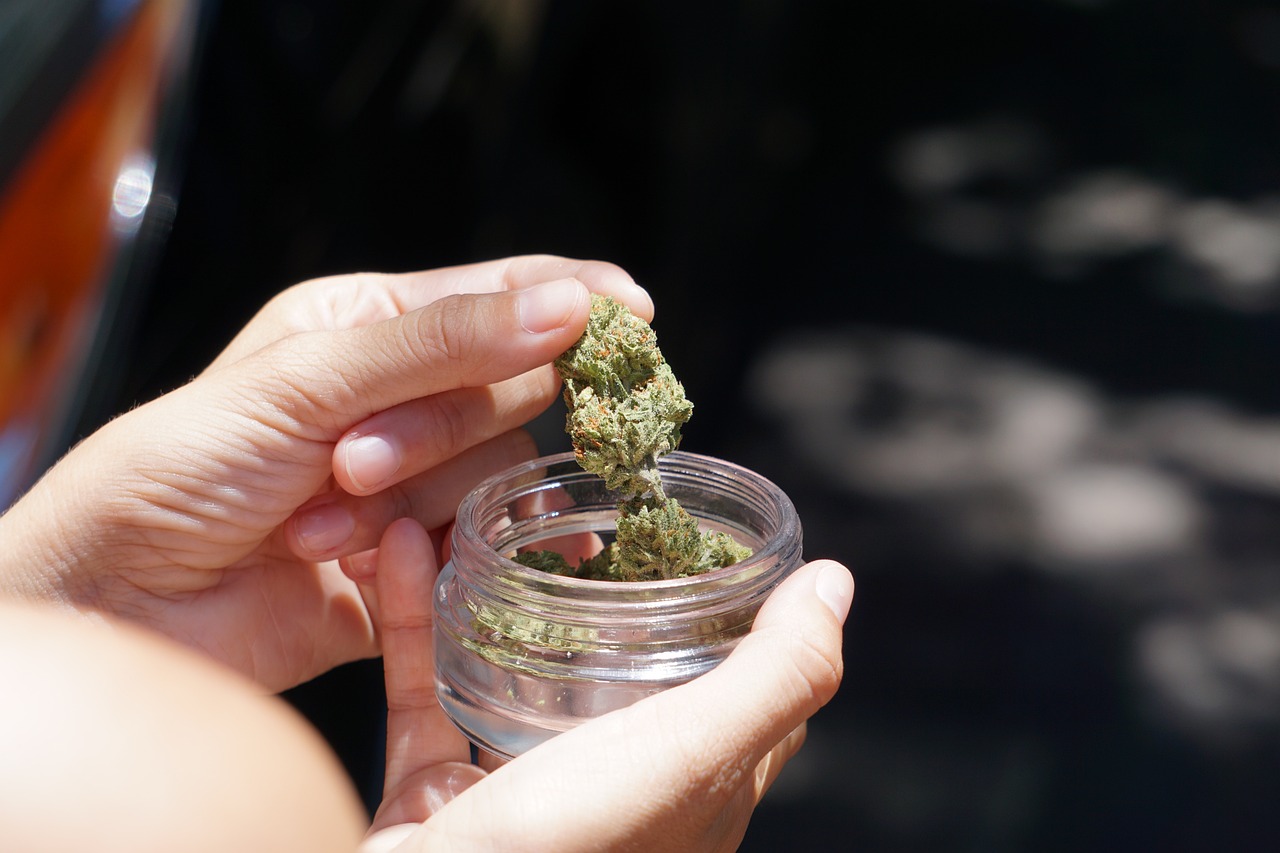The debate of weed vs alcohol has sparked discussions for decades, with many wondering which substance is more harmful. While both alcohol and weed come with their own set of effects, determining which is worse can be tricky.
Generally, weed tends to come with fewer risks compared to alcohol, but there are a lot of factors that influence their effects. Both substances affect the body differently, making a side-by-side comparison challenging. In this article, we’ll dive into the effects and risks of each, comparing weed vs alcohol to help you understand how they stack up against each other.
Factors to Consider When Comparing Weed vs Alcohol
Before comparing weed vs alcohol, it’s important to consider some factors that complicate the comparison:
Lack of Research
While alcohol has been studied extensively, there’s still a lack of large, long-term studies on the effects of weed. Research on marijuana vs alcohol is growing, but we don’t yet fully understand the long-term risks of marijuana. This means that weed may appear safer simply because we haven’t identified all of its potential risks yet.
Variety of Products
Weed comes in a variety of forms—vaping, edibles, oils, and more—each with its own potential effects. Smoking weed, for example, can harm your lungs, but consuming edibles doesn’t carry this same risk. In contrast, alcohol consumption methods are more straightforward, with fewer varieties affecting the body in different ways.
Individual Biology
The way each person reacts to weed or alcohol varies. Some people may have a high tolerance for alcohol but struggle with marijuana, while others may have the opposite experience. Understanding individual tolerance is key to comparing weed vs alcohol in a meaningful way.
Short-Term Effects of Weed vs Alcohol
Both alcohol and weed have distinct short-term effects that vary from person to person. Some people report similar feelings when drunk vs high, while others feel the sensations are quite different. Here’s a breakdown of the most common short-term effects for each:
Alcohol
Drinking alcohol can produce a wide range of effects, including:
- Coordination and reflex issues
- Impaired cognitive skills
- Impaired judgment
- Relaxation or restlessness
- Giddiness or drowsiness
- Shorter attention span
- Nausea and vomiting
And, of course, there’s the dreaded hangover that can cause headaches, diarrhea, and more the next day.
Weed
The effects of weed vary greatly from person to person. Common short-term effects include:
- Altered perception of time
- Coordination and reflex issues
- Impaired cognitive skills
- Impaired judgment
- Relaxation (though some experience anxiety)
- Giddiness or drowsiness
- Nausea and increased hunger
- Dry mouth, dry red eyes
If you’re wondering about the lingering effects, marijuana can cause some people to experience brain fog, drowsiness, and headaches the next day.
Comparing the Feelings: Drunk vs High
When comparing the feeling of being drunk vs high, some people feel they are quite similar, while others describe them as vastly different. Being drunk typically leads to impaired motor skills and judgment, whereas being high often includes altered perceptions and a sense of euphoria, although it can also cause anxiety in some cases.
Which is Worse: Weed or Alcohol?
If you’re wondering “which is worse, alcohol or weed?”, it ultimately depends on various factors, including individual biology, consumption habits, and long-term health effects. Alcohol, for example, is linked to a range of chronic conditions and social problems, including liver disease and addiction, whereas marijuana is less associated with long-term physical health risks, though its impact on mental health is still under study.
The Bottom Line: One Joint vs One Beer
When it comes down to one joint vs one beer, both substances have their unique effects, but considering long-term risks, alcohol tends to be more harmful due to its higher potential for addiction and physical damage. Marijuana, while not risk-free, generally poses fewer physical dangers and is less likely to result in violence or dangerous behavior compared to alcohol.
Long-Term Health Risks: Weed vs Alcohol
Just like the short-term effects, the long-term health risks of weed vs alcohol can vary greatly depending on the person, the amount consumed, and the duration of use. Here’s a breakdown of the long-term health impacts of both substances.
Alcohol
Heavy or prolonged alcohol consumption can lead to several serious health conditions, including:
- Liver Disease: Chronic alcohol abuse can cause liver disease, which impairs your body’s ability to detoxify and process substances.
- Pancreatitis: Alcohol misuse is a leading cause of pancreatitis, which involves inflammation of the pancreas.
- Heart Damage: Drinking heavily can harm the cardiovascular system, increasing the risk of heart disease and other related issues.
- Stomach and Digestive Problems: Large amounts of alcohol can irritate the stomach lining, leading to ulcers, bloating, pain, and digestive issues.
- Central Nervous System Damage: Chronic alcohol use can lead to nerve damage, resulting in numbness and tingling sensations in the limbs.
- Erectile Dysfunction: Long-term alcohol use can negatively affect sexual health, leading to erectile dysfunction.
- Infertility: Excessive alcohol consumption can impact fertility in both men and women.
Weed
While the long-term effects of weed are still not fully understood, research suggests several potential risks:
- Brain Development Issues: A 2014 study found that using weed during the teenage years could impair brain development, though it is unclear if these effects are permanent. Source: National Institute on Drug Abuse.
- Schizophrenia: There is a complex relationship between weed use and schizophrenia. While more research is needed, some experts believe that marijuana use can trigger the onset of schizophrenia in individuals with a family history of the disorder.
It’s important to note that these long-term effects don’t take into account how different consumption methods—such as smoking, vaping, or edibles—may alter the risks associated with weed. Additionally, the lack of comprehensive, long-term studies on weed makes it difficult to draw definitive conclusions.
Dangers During Pregnancy: Alcohol vs Marijuana
Both alcohol and marijuana pose potential risks to a developing fetus, and using either during pregnancy can lead to lasting effects.
Alcohol
Even drinking alcohol during the early stages of pregnancy can have severe, long-term effects on the child. According to the CDC, 3.3 million women are at risk of exposing their babies to alcohol, which can result in physical, behavioral, and intellectual disabilities known as fetal alcohol spectrum disorders (FASDs). The CDC advises that no amount of alcohol is considered safe during pregnancy.
Marijuana
Though marijuana is commonly used during pregnancy, studies suggest it could also have harmful effects. Some evidence points to a link between marijuana use during pregnancy and low birth weight, but because there are limited studies on this topic, it’s difficult to determine the full extent of the risks associated with marijuana use during pregnancy.
Both substances come with significant risks, and avoiding them during pregnancy is crucial for the health of the baby. For more details on substance use during pregnancy, check out this resource: Dangers of Substance Use During Pregnancy.
Risk of Overdose: Alcohol vs Marijuana
When comparing the risk of overdose between alcohol and marijuana, alcohol is far more dangerous in this regard. While moderate drinking is not typically life-threatening, excessive alcohol consumption can be fatal. The CDC reports that nearly 88,000 alcohol-related overdose deaths occur annually, with binge drinking contributing to about half of these fatalities.
Alcohol
The risks of alcohol overdose are significant and can lead to death, especially when consumed in large quantities. Binge drinking is particularly dangerous, and the CDC highlights the dangers of drinking excessively in a short period.
Marijuana
In contrast, the risk of dying from marijuana overdose is virtually nonexistent. A study has found that a lethal dose of THC—the active compound in marijuana—would require between 15 and 70 grams. To put this in perspective, a typical joint contains about half a gram of marijuana. This means you would need to smoke between 238 and 1,113 joints in a single day to overdose on marijuana, an almost impossible feat.
Thus, while marijuana is not without risks, its potential for fatal overdose is far less than that of alcohol.
Dangers of Driving While Under the Influence: Weed vs Alcohol
When comparing the dangers of driving under the influence of weed vs alcohol, it’s important to note that while driving stoned is considerably safer than driving drunk, it still presents significant risks. Marijuana is the second most commonly detected drug in drivers involved in car accidents, following alcohol. One study found that marijuana increased the likelihood of being in a car accident by 83%. While this number is alarming, it’s important to put it into perspective: when alcohol is involved, the odds of being in a car accident increase by more than 2,200%!
The risks skyrocket when both alcohol and marijuana are in the system, leading to an especially high chance of a fatal accident. The takeaway? It’s never safe to drive under the influence of either alcohol or marijuana, but combining the two amplifies the danger dramatically.
Weed vs Alcohol: A Final Thought
When comparing weed vs alcohol in terms of long-term health risks, alcohol appears to be the more harmful of the two due to its association with physical damage, addiction, and numerous chronic conditions. Marijuana, while not free from risks, especially in terms of mental health, is generally considered less harmful to the body over time. However, more research is needed to fully understand the long-term impacts of both substances.
For more insights on long-term effects, check out these resources:



